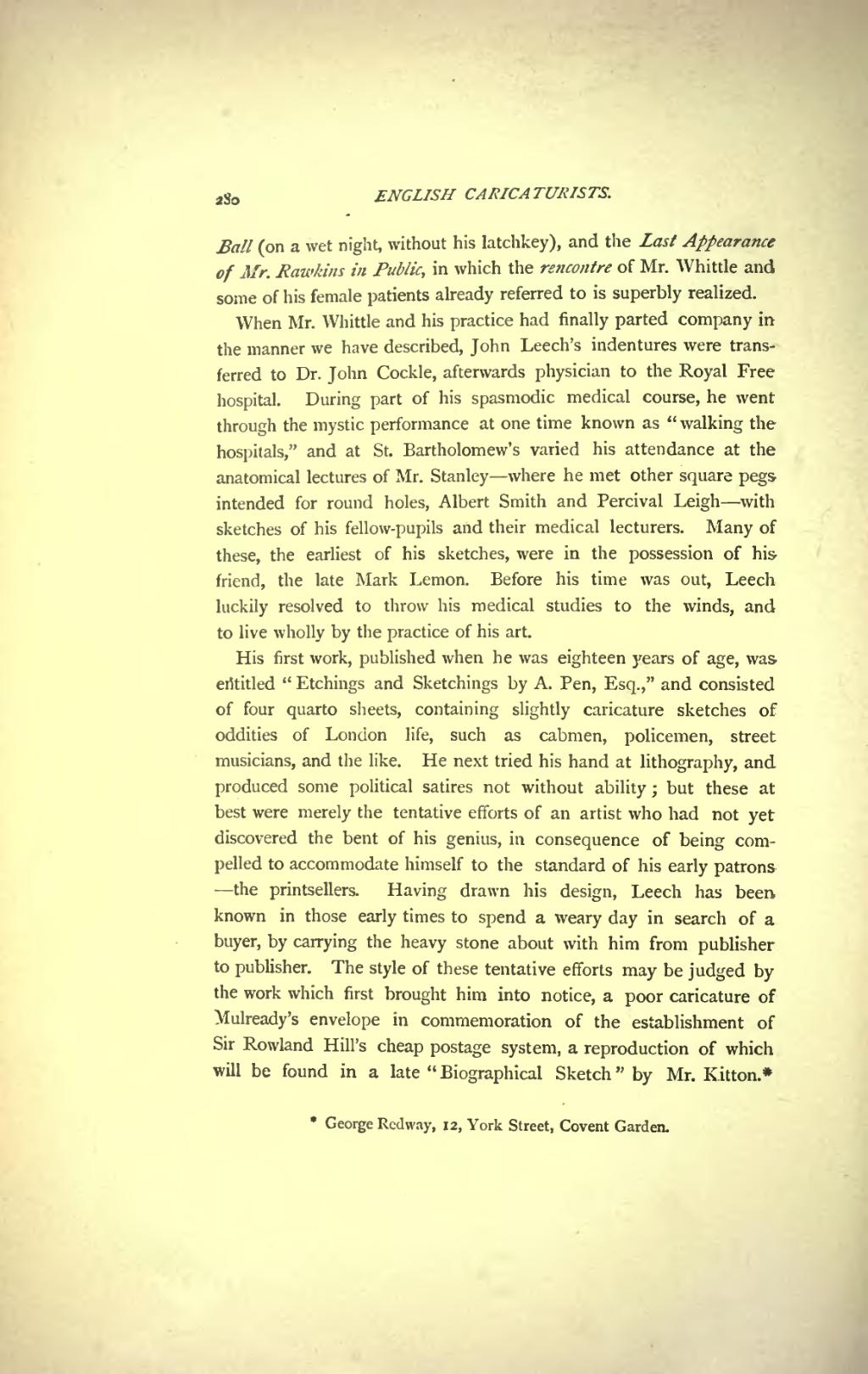Ball (on a wet night, without his latchkey), and the Last Appearance of Mr. Rawkins in Public, in which the rencontre of Mr. Whittle and some of his female patients already referred to is superbly realized.
When Mr. Whittle and his practice had finally parted company in the manner we have described, John Leech's indentures were transferred to Dr. John Cockle, afterwards physician to the Royal Free hospital. During part of his spasmodic medical course, he went through the mystic performance at one time known as "walking the hospitals," and at St. Bartholomew's varied his attendance at the anatomical lectures of Mr. Stanley—where he met other square pegs intended for round holes, Albert Smith and Percival Leigh—with sketches of his fellow-pupils and their medical lecturers. Many of these, the earliest of his sketches, were in the possession of his friend, the late Mark Lemon. Before his time was out, Leech luckily resolved to throw his medical studies to the winds, and to live wholly by the practice of his art.
His first work, published when he was eighteen years of age, was entitled "Etchings and Sketchings by A. Pen, Esq.," and consisted of four quarto sheets, containing slightly caricature sketches of oddities of London life, such as cabmen, policemen, street musicians, and the like. He next tried his hand at lithography, and produced some political satires not without ability; but these at best were merely the tentative efforts of an artist who had not yet discovered the bent of his genius, in consequence of being compelled to accommodate himself to the standard of his early patrons—the printsellers. Having drawn his design, Leech has been known in those early times to spend a weary day in search of a buyer, by carrying the heavy stone about with him from publisher to publisher. The style of these tentative efforts may be judged by the work which first brought him into notice, a poor caricature of Mulready's envelope in commemoration of the establishment of Sir Rowland Hill's cheap postage system, a reproduction of which will be found in a late "Biographical Sketch " by Mr. Kitton.[1]
- ↑ George Rodway, 12, York Street, Covent Garden.

